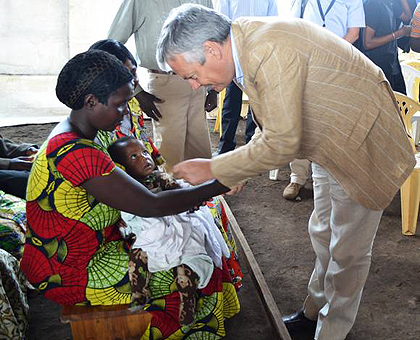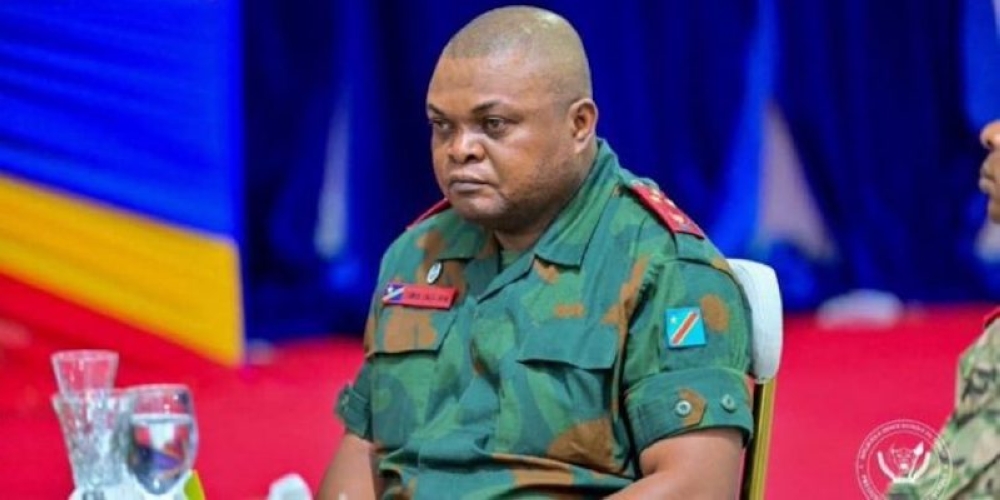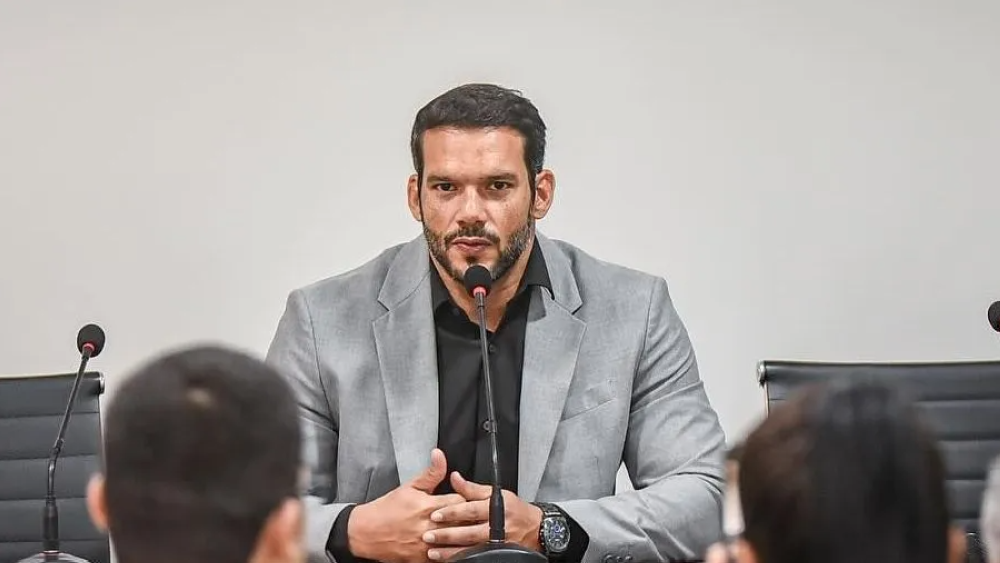The Belgian Minister of Foreign Affairs, Didier Reynders, arrived in Rwanda yesterday as part of a fact finding mission that is geared towards finding the cause and crafting a solution to the crisis in DRC.


The Belgian Minister of Foreign Affairs, Didier Reynders, arrived in Rwanda yesterday as part of a fact finding mission that is geared towards finding the cause and crafting a solution to the crisis in DRC.Reynders, who is also Belgium’s deputy premier, began his Rwanda tour by visiting displaced Congolese Refugees in Nkamira transit centre in Rubavu district."Rwanda has played a very commendable and vital role by hosting the refugees and we shall continuously support this country as we closely work with the Congolese government to find a lasting solution to the conflict and enable them to go back home,” the Belgian Minister said.Nkamira transit center is home to about 1000 refugees who fled the DRC following the insurgence in North Kivu Province.Reynders, his wife and 24-member delegation visited the DRC before coming to Rwanda via Rubavu border town which Rwanda shares with Congo. Flanked by Western Province Governor Celestin Kabahizi and a host of other local leaders, the Deputy Premier who was en route from DRC spoke to the refugees and listened to their testimonies. Most of those who gave testimonies said they had been mistreated by Congolese Army forces or remnants of the perpetrators of the 1994 Genocide who are still holed up in eastern DRC, operating under a terrorist group known as the Democratic Forces for the Liberation of Rwanda (FDLR). The Belgian Minister noted that there is an urgent need to join efforts to restore security and peace in this troubled region of the DRC, by helping to reform the army, police, administration, justice, and establish the rule of law.Clashes between various armed groups in Masisi and Walikale or against the Armed Forces of the DRC (FARDC) in Rutshuru, also in North Kivu, have forced Congolese to flee their country.Most of the fighters were former members of the Congolese National army but broke away for various reasons including lack of pay and harassment.There have been allegations that Rwanda is fuelling the DRC crisis, leading to some donor countries cutting or suspending aid. The allegations were initially documented in a UN group of experts report. However, the evidence, in the report has of recent turned out to be fabricated, bringing the credibility of the report into question. Belgium is yet to take a stand and according to Reynders, his fact finding mission, which will also include meeting various government officials, will be that basis for any decision. Earlier, Media in Goma had quoted Reynders as saying that it was wrong for individual European Union member countries (EU) to cut aid to Rwanda without first consulting their counterparts.The UNHCR country representative, Neimah Warsame, said that there is need to support local Rwandan administrative authorities to initiate health and education programs for the refuges wherever they are. She pointed out that the international community should come up to help in solving the existing food crisis because the Wold Food Programme (WFP) has threatened to a break in the food pipeline for the refuges. Available statistics show that Rwanda currently hosts approximately 60,000 refuges majority being from DRC. As part of his ongoing tour, Reynders later visited the Kigali Memorial Centre in Gisozi and the memorial Paras Belgians.Today, he is expected to hold a meeting with his Rwandan counterpart Minister Louise Mushikiwabo. The two Ministers are expected to host a joint press conference.




